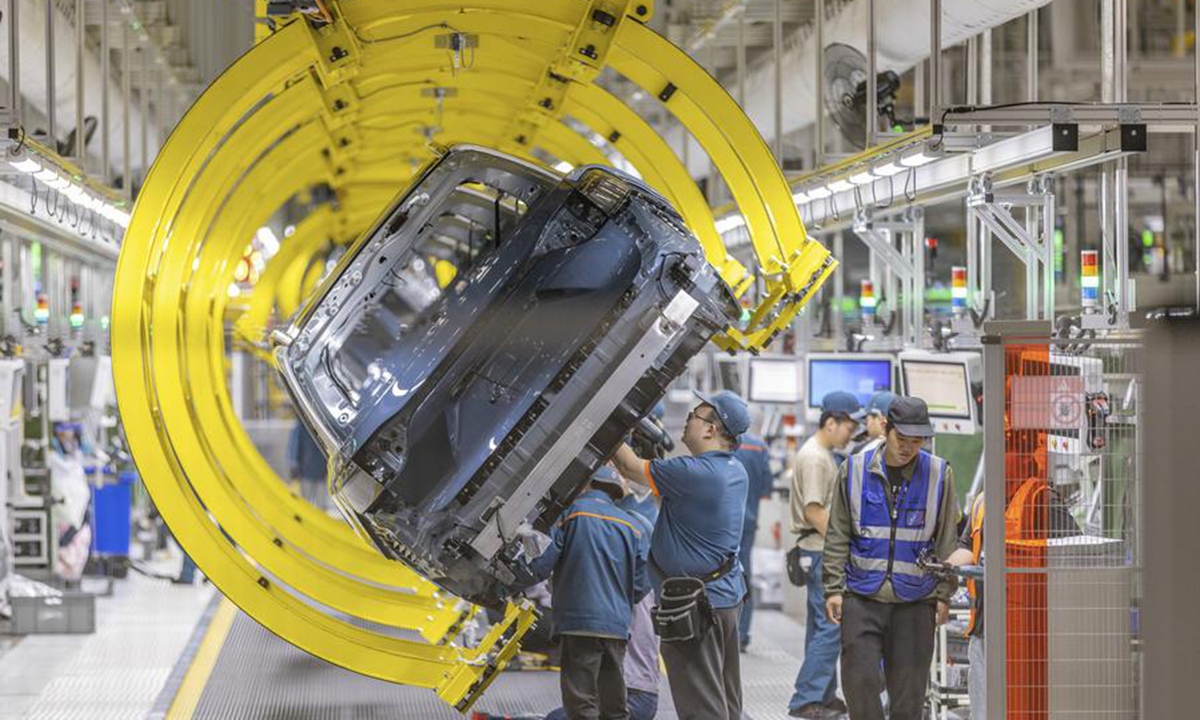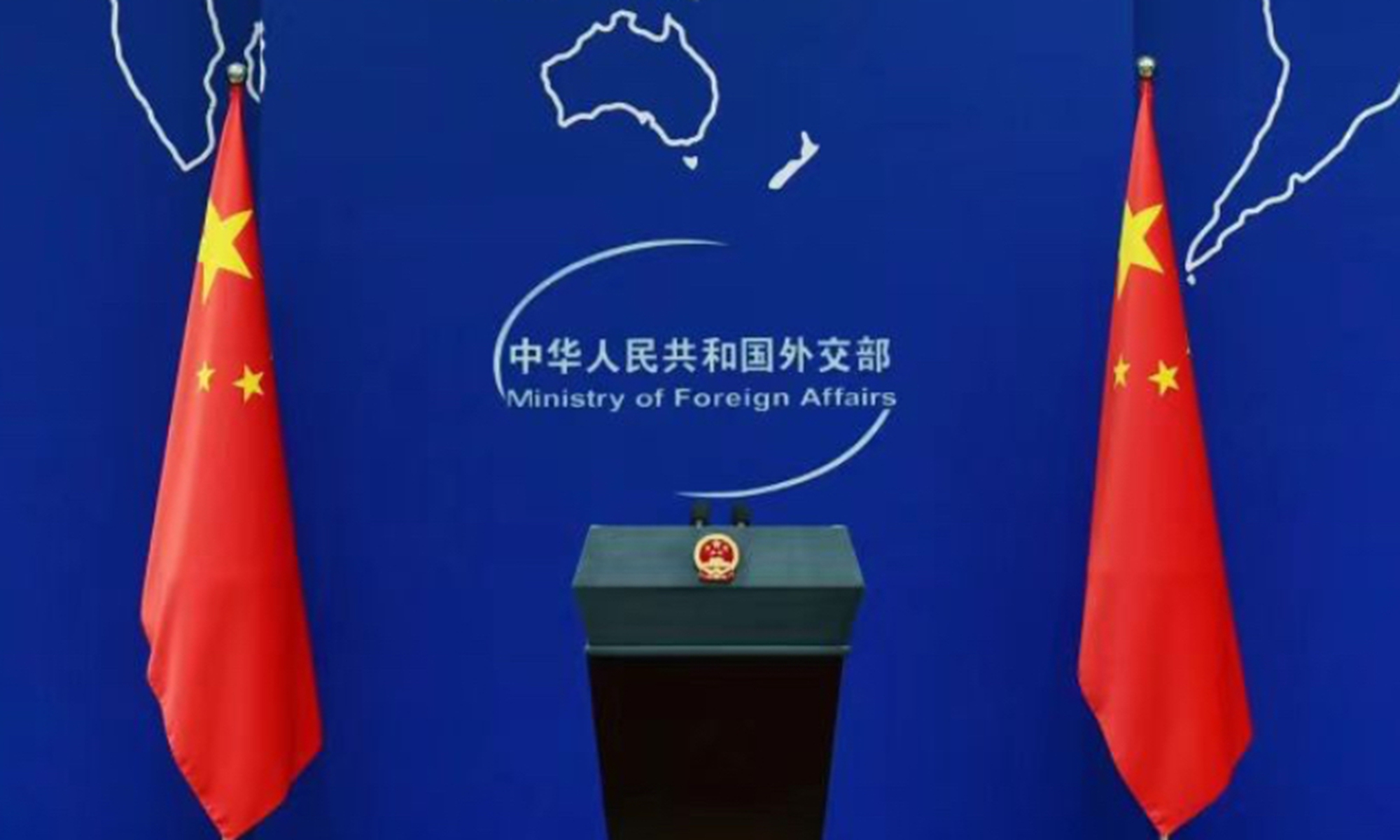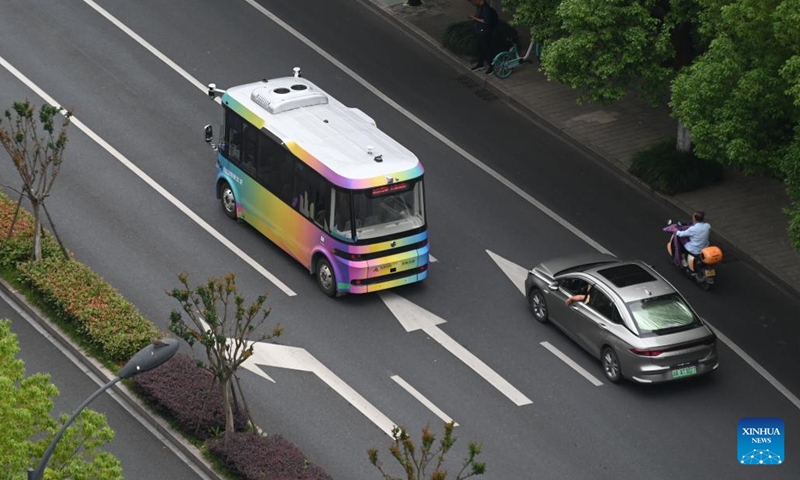Biden administration’s restrictions on Chinese car components ‘dramatically’ understate costs on US entities: US industry group

Employees work at an assembly line of Chinese vehicle manufacturer Seres Group in Liangjiang New Area, southwest China's Chongqing Municipality, April 25, 2024. (Xinhua/Huang Wei)
The US Consumer Technology Association (CTA) expressed concerns to the US Department of Commerce about the potential increased costs and other impacts of the Biden administration's restrictions on Chinese software and hardware used in US vehicles, the Global Times learned from a document shared by the CTA on Wednesday.
The CTA is North America's largest technology trade association and represents the $505 billion US consumer technology industry, which supports more than 18 million US jobs, said the document.
President Joe Biden's outgoing administration is finalizing rules on Tuesday that will effectively bar nearly all Chinese cars and trucks from the US market, as part of a crackdown on vehicle software and hardware from China, Reuters reported.
In responding to the US restrictions, the CTA, which is also the producer of the Consumer Electronics Show, said that the Bureau of Industry and Security (BIS) of the US Department of Commerce assesses that 42 to 281 entities will be potentially impacted by the proposed rule and that the initial cost burden for these entities is between $30,964 and $38,554.
However, the CTA finds it likely that these cost estimates are "dramatically understated," asking the BIS to revisit its proposed cost estimates. Anecdotal reports from industry experts expect a mid-six-digit to low-seven-digit cost burden, the document said.
Also, it is impossible to estimate to an accurate amount the true cost-impact this rulemaking will have in the 30-day window of this comment period. At a minimum, BIS must revisit its assumptions about the likely reach of this rule to reasonably and fully consider the costs it would impose, the CTA said.
Moreover, the BIS' cost assessment fails to consider potential unintended downstream impact, said the CTA.
Specifically, the US Department of Commerce has stated that the proposed rule is drafted to "address the national security risks posed by Connected Vehicles" and that it seeks to strike a balance by "focusing the rule only on those systems that most directly facilitate the transmission of data both into and from the vehicle." This proposed rule fails to address the relationship between these systems and the broader mobile wireless ecosystem, said the CTA, noting that "the technology that comprises automotive connectivity systems is not unique or exclusive to connected vehicles. Instead, it could unintentionally sweep in a broad range of wireless technologies that are essential to connected vehicles but were not originally designed for automotive applications."
In September, the US Department of Commerce proposed a sweeping ban on key Chinese software and hardware in connected vehicles on American roads, with software prohibitions to take effect in the 2027 model year and those on hardware in 2029, Reuters reported.
The US industry group recommends to extend the timelines from one to three years for software, and from four to six years for hardware, as these timelines would be better aligned with the realities of automotive manufacturing.
Global Times



